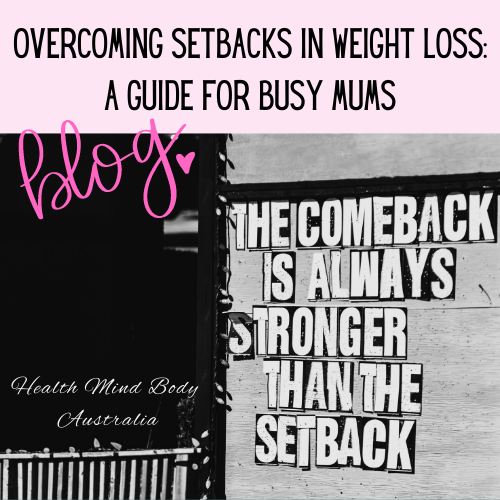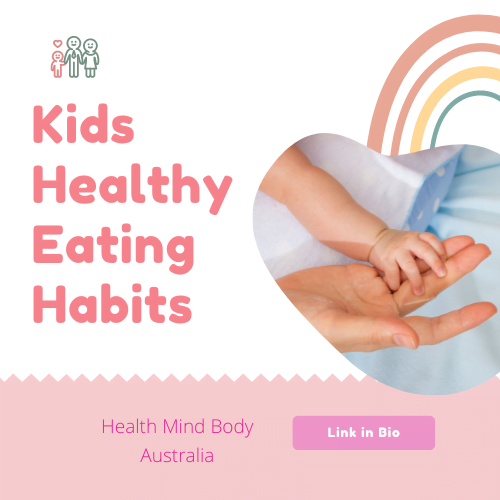Intuitive Eating: Listening to Your Body for Effective Weight Management
In a world saturated with diet fads, calorie counting, and rigid meal plans, the concept of intuitive eating offers a refreshing approach to achieving and maintaining a healthy weight.
Intuitive eating is not just another diet trend; it’s a lifestyle that encourages you to re-establish a harmonious relationship with your body and the food you consume.
By tuning into your body’s natural cues, intuitive eating allows for effective weight management without sacrificing mental and emotional well-being.
Understanding Intuitive Eating
Intuitive eating is rooted in the belief that your body possesses a natural wisdom to guide you toward the foods and quantities that best nourish you.
Unlike traditional diets that prescribe specific foods and portions, intuitive eating focuses on developing a mindful awareness of your body’s signals – hunger, fullness, and satisfaction.
It encourages the cultivation of a non-judgmental attitude towards food choices, making it a powerful tool for breaking free from the cycle of restrictive eating and guilt associated with traditional diets.

The Principles of Intuitive Eating
Reject the Diet Mentality
Intuitive eating begins by letting go of the idea that certain foods are ‘good’ or ‘bad’.
This mentality sustains an unhealthy relationship with food and can lead to feelings of deprivation and guilt.
Honour Your Hunger
Eating when you’re genuinely hungry is crucial.
Ignoring hunger cues can lead to overeating later on.
By listening to your body’s hunger signals, you can prevent excessive consumption and promote more balanced eating.
Make Peace with Food
Allowing yourself to enjoy a wide variety of foods without judgment is essential.
Banning certain foods often leads to cravings and overindulgence when the opportunity arises.
Challenge the Food Police
Silence the inner critic that judges your food choices.
Intuitive eating encourages self-compassion and acknowledges that eating should not be accompanied by guilt or shame.
Respect Your Fullness
Pay attention to your body’s cues when it signals satisfaction and fullness.
Learning to stop eating when you’re comfortably full helps prevent overeating.
Discover Satisfaction
Finding pleasure in your meals is an integral part of intuitive eating.
Savoring the flavours and textures of your food contributes to a more fulfilling eating experience.
Cope with Emotions Without Using Food
Emotional eating is common, but intuitive eating encourages finding alternative ways to deal with emotions.
Mindfulness, relaxation techniques, and engaging in enjoyable activities can help manage emotions effectively.
Respect Your Body
Embrace your body’s unique shape and size.
Focus on what your body can do rather than striving for an unrealistic image.
Exercise – Feel the Difference
Shift your focus from exercising for weight loss to moving your body for enjoyment and health.
Recognise the positive effects of physical activity as well as burning calories.
Honour Your Health with Gentle Nutrition
While no food is off-limits, mindful consideration of nutrition can enhance your overall well-being.
Opt for foods that make you feel good, both physically and mentally.
Benefits of Intuitive Eating for Effective Weight Management
Intuitive Eating, as a holistic approach to nutrition, offers a range of benefits for achieving and maintaining a healthy weight.
Let’s explore the advantages of adopting this approach.
Sustainable Approach
Intuitive eating is a lifelong strategy that doesn’t rely on drastic calorie restrictions or extreme dietary changes.
It’s a flexible approach that adapts to your changing needs and circumstances.
Improved Body Image
By focusing on how you feel rather than how you look, intuitive eating promotes a positive body image and reduces the negative impact of weight-related stress.
Enhanced Emotional Well-being
Breaking free from the dieting cycle reduces feelings of guilt, anxiety, and frustration related to food.
This leads to improved emotional well-being and reduced emotional eating.
Freedom from Food Obsession
Intuitive eating helps to break the obsessive thoughts about food and weight that can consume many individuals on traditional diets.
Natural Weight Regulation
Over time, intuitive eating tends to lead to a more stable and healthy weight as your body learns to regulate itself based on true hunger and satiety cues.
Implementing Intuitive Eating in Your Life
Transitioning to intuitive eating might require a shift in mindset and a willingness to let go of old habits. Here are some practical steps to help you embrace intuitive eating:
Start with Awareness
Begin by paying attention to your body’s hunger and fullness cues.
Before eating, pause and ask yourself how hungry you are on a scale from 1 to 10.
Similarly, check in with yourself during the meal to gauge your level of fullness.
Cultivate Mindfulness
Eating mindfully means savoring each bite and being present with your food.
Avoid distractions like screens and take time to appreciate the flavours, textures, and aromas of what you’re eating.
Practice Self-Compassion
Be kind to yourself and let go of self-criticism.
Remember that intuitive eating is a journey, and it’s okay to have ups and downs along the way.
Ditch the Diet Mentality
Unsubscribe from diet culture by unfollowing social media accounts that promote unrealistic body standards or restrictive diets.
Surround yourself with positive influences that align with your intuitive eating journey.
Explore New Foods
With no food off-limits, seize the opportunity to try foods you’ve never tasted before.
This opens up a world of culinary delights and helps you discover what truly satisfies your palate.
Keep a Food Journal
While not only for calorie counting, a food journal can help you reflect on your eating habits, emotions, and physical sensations.
This awareness can be instrumental in understanding your relationship with food.
Practice Self-Care
Engage in activities that bring you joy, relaxation, and fulfillment beyond food.
This helps you develop alternative coping mechanisms for dealing with stress and emotions.
Seek Support
If the concept of intuitive eating is new to you, consider seeking guidance from a registered dietitian or therapist who specialises in this approach.
They can provide personalised advice and strategies tailored to your needs.
Be Patient and Persistent
Intuitive eating is a process that takes time to master.
Embrace the journey and celebrate even the smallest victories along the way.
Overcoming Challenges
While intuitive eating can lead to numerous benefits, it’s important to acknowledge that the transition might come with challenges.
Here are some common hurdles and strategies to overcome them:
Mindful Eating Practice
Mindful eating, a cornerstone of intuitive eating, might require practice.
Start with one meal a day where you focus on savouring each bite and paying attention to your body’s cues.
Tuning into Hunger and Fullness
It can take time to relearn how to listen to your body’s hunger and fullness signals.
Gradually, you’ll become more attuned to these cues and trust your body’s wisdom.
Dealing with Emotional Eating
Finding alternative ways to cope with emotions can be challenging.
Engage in activities you enjoy, practice deep breathing, or consider talking to a therapist to help develop healthy coping mechanisms.
Navigating Social Situations
Social events and peer pressure can make it difficult to stick to intuitive eating.
Prioritise your well-being and choose foods that align with your intuitive eating principles while still enjoying social interactions.
Patience and Persistence
The journey to intuitive eating is not linear.
There might be times when you revert to old habits.
Be patient with yourself and continue moving forward.
Final Thoughts – Intuitive Eating
In a world inundated with extreme diets and quick-fix weight loss solutions, intuitive eating stands as a beacon of sanity and self-care.
It’s an approach that encourages you to re-establish a harmonious relationship with your body and the food you consume.
Intuitive eating offers a refreshing departure from the world of restrictive diets and weight-focused approaches.
It’s an invitation to reconnect with your body’s wisdom and embrace a holistic view of health that encompasses physical, emotional, and mental well-being.
By practicing mindful eating, respecting your body’s cues, and cultivating self-compassion, you can achieve effective weight management while enjoying a more positive and satisfying relationship with food.
Remember, intuitive eating isn’t just about what you eat; it’s about how you nourish your body and soul.
By listening to your body’s cues and rejecting the diet mentality, you can embark on a journey of self-discovery, self-acceptance, and effective weight management.
Intuitive eating is not just a set of principles; it’s a lifestyle that nurtures self-awareness, self-compassion, and self-discovery.
It liberates you from the chains of diet culture, replacing guilt and deprivation with a profound sense of empowerment and freedom.
The practice allows you to honour your body, acknowledge your hunger and fullness, and savor the joy of eating.
As you navigate the journey of intuitive eating, challenges may arise, but each obstacle is an opportunity for growth.
By embracing patience, persistence, and self-kindness, you can overcome these challenges and continue on the path towards a healthier and more fulfilling life.
So, whether you’re starting your intuitive eating journey or have been practicing it for years, remember that every mindful bite, every act of self-compassion, and every step towards self-acceptance is a victory in itself.
I’m on a mission to share every bit of wisdom I’ve gained along the way. No fancy gimmicks, no unrealistic expectations – just practical tips and recommendations that come straight from my own experiences. Because I know firsthand how tricky it can be to balance a bustling household with self-care and wellness goals.
Follow me for regular updates, heartfelt stories, and product suggestions that have been tried and tested in my own life. Instagram @Keto_Balanced_Lifestyle.
Disclosure: This content reflects my personal opinion and is not intended as medical advice. Always consult with a qualified healthcare professional for personalized guidance on health and nutrition.
Amy xx
This page contains affiliate links. If you choose to make a purchase after clicking a link, I may receive a commission at no additional cost to you.



- Accountability in Weight Loss: The Importance of Accountability
- 28 Day Challenge – No Time for Dieting – The Healthy Mummy
- 5 Lessons Learned in Weight Loss: Insights from a Personal Journey
- Plant Based Keto Lifestyle
- Importance of Fitness Routines for Busy Mums





